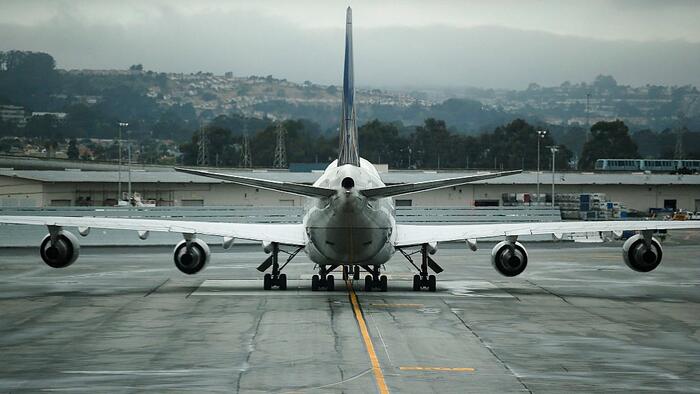As millions of Americans gear up for a record-breaking holiday travel season, the Senate Permanent Subcommittee on Investigations (PSI) has disclosed findings emphasizing the increasing dependency of major airlines on ancillary fees, often referred to as “junk fees.” On November 26, the PSI released a report highlighting the complexity and escalation of these charges, which have become crucial revenue sources for airlines. The report, under the direction of Senator Richard Blumenthal (D-Conn.), scrutinizes major airlines such as American Airlines, Delta Airlines, Frontier Airlines, Spirit Airlines, and United Airlines, shedding light on their evolving pricing strategies that have moved many traditional services from included ticket prices to separate charges that customers face during their travel experience.
The report points out that travelers are encountering a landscape where fees are rising and vary greatly, complicating efforts to avoid additional charges. According to Senator Blumenthal, the PSI investigation has uncovered revealing new instances of airlines taking advantage of passengers through exorbitant fees with no relation to the actual costs incurred by the airlines. As the Thanksgiving holiday approaches, these fees are expected to generate millions in revenue, which many argue unfairly burdens the traveling public while benefiting airline profits without transparency. Investigators uncovered that airlines employ various methods, such as dynamic pricing algorithms and incentive programs, to extract maximum fees from passengers for services once typically bundled into the ticket price.
The PSI report brought to light specific practices within certain airlines, revealing that Spirit and Frontier have expended significant amounts — $26 million from 2022 to 2023 — to incentivize gate agents to enforce baggage policies strictly. This translates to agents being compensated for flagging excess baggage, raising the potential for additional fees charged to passengers. Alarmingly, between 2018 and 2023, the study found these airlines collectively generated more than $12.4 billion just from seat fee revenues, often with fees fluctuating based on passenger data, casting doubt on the justification of these charges. Furthermore, the report ascertains that airlines do not keep detailed cost data related to these ancillary services, complicating price transparency for consumers.
Additionally, the PSI investigation uncovered inconsistencies within the airlines’ approach to how they categorize fees. Some airlines classify certain charges as “optional” to sidestep federal transportation taxes typically applied to ticket prices. This leads to discrepancies in service taxation across different carriers, potentially hindering travelers’ abilities to make direct price comparisons. As the airlines gear up for a hearing scheduled for December 4, where executives will be called to provide testimony, the report raises crucial points about consumer grievances regarding these fee structures and sets the stage for discussions around the necessity of enhanced transparency and fairness in airline pricing practices moving forward.
In response to the PSI’s findings, responses from the airline industry have been mixed. The trade group Airlines for America (A4A) expressed disappointment, claiming that the subcommittee misunderstood the competitive nature and value of the airline industry. They defended ancillary fees as enabling greater flexibility and affordability for customers, reiterating that many consumers prefer to pay only for the services they use. A4A also emphasized that airlines provide transparent fee disclosures at the point of purchase, maintaining compliance with all relevant laws and regulations. Delta Airlines echoed these sentiments, stressing its commitment to transparency and cooperation with the subcommittee’s ongoing investigation.
Conversely, Spirit Airlines defended its pricing model by highlighting its historical role in providing affordable, low-fare flights, asserting that its pricing structure offers accessibility to the public. The company expressed a desire to engage in a constructive dialogue at the upcoming hearing, advocating for equitable initiatives that could benefit both larger and smaller airlines while ensuring a better experience for travelers. United Airlines opted not to comment, while Delta and Frontier Airlines have yet to respond to inquiries concerning the PSI reports. The outcome of the December hearing may have significant implications for the way airlines structure their fees and how consumers navigate the complex world of air travel costs in the future.
As the holiday travel season approaches with many anticipating busy airports and crowded flights, the revelations from the PSI report are pivotal. The growing reliance on ancillary fees indicates a shift in airline revenue models and serves as a stark reminder of the challenges facing consumers amid rising costs and complex pricing structures. Advocates for transparency in pricing will be closely monitoring the developments that arise from the upcoming hearings, as the conversation continues around consumer rights and fair practices within an evolving airline industry landscape. Ultimately, as travel recovery trends amid a post-pandemic world persist, the relationship between airlines and their customers will remain crucial, driving the need for clearer, fairer policies that support all travelers.

